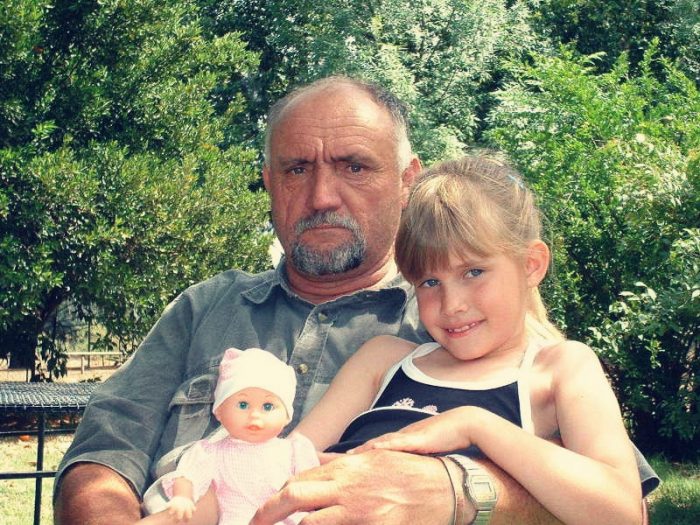Death came knocking on my door when my father died unexpectedly and suddenly.
These past few months, I’ve immersed myself in grief and felt like I was walking through a never-ending labyrinth.
In Greek mythology, a labyrinth is a complex, confusing structure with a lot of choices, paths, and directions to make. A person has to navigate themselves through the pathways in order to find the one single path that will lead to the exit out of the labyrinth.
As soon as we enter a state of grief, we enter an emotional and spiritual labyrinth.
In the beginning, we will walk slowly and carefully, not knowing where the path through the dark and unfamiliar maize will take us. Since we can’t make out the path ahead, we may feel an uncertain or scary sensation start to burn up inside of us. These feelings may fade along the way when we start to become familiar with our circumstances and emotions.
Just as we start to walk, we may come across the first wall early in our process. This wall is called Denial.
“How can this be happening?” we may ask. “I just started to walk my path of bereavement.”
For most people, this step can break their spirits and keep them from moving forward, finding the labyrinth meaningless. Just like grief, the first stage of denial may put us two steps back. Tough emotions may make their way through our head, and thoughts like, “This can’t be true; my father can’t really be gone,” may jump up from nowhere.
We may not necessarily experience this emotion at the start of our grieving process either. We could be in our sixth month of grieving when denial hits us like a lightening bolt. But as with most things in life, once we accept how we’re feeling—once we accept the wall in front of us—we’ll be able to move on.
It is after hitting the third, fourth, or even fifth wall when Anger starts to boil up inside, and when our reality and its pain reemerge. We may be angry at our deceased love one for not fighting hard enough to stay on Earth a little bit longer. Maybe we start blaming ourselves for not doing enough to prevent our loved one from dying, or maybe we resent another loved one or the doctor who treated the illness. We could even feel angry at God for not answering our prayers. Once we face the intense feeling of anger and give it space to pass, we can start picking up the pieces and continue walking our path of grief.
We may also face a crossroads where we’re obligated to choose, to decide “left” or “right.” This is called Bargaining. If we choose left instead of right, and we hit a wall, we might ask ourselves, “Why?” and think, “If only I had chosen the right direction.” If only we have taken him to a doctor sooner. If only we had celebrated New Year’s Eve with him for the last time.
We secretly bargain with God in order to postpone our pain, but with bargaining also comes immense guilt. We wonder if we could’ve saved our loved one or done more for him. It is at this point in the process when we are obligated to decide how we will move forward. If we decide to stop feeling guilty and focus on the great possibilities that lie ahead of us, we might just find the right path out of this dark, overwhelming maze.
There will be times when we are conscious of the darkness that surrounds us. This is Depression. In this phase, we will feel sorrow and regret. It literally feels like there is a shadow hanging over us, a cloud blocking the sun from shining—a chill, a hopelessness. Mourning is like a cold, grey winter’s day where all the flowers around us have died and we are trying our best to find some color in the world.
“This too shall pass,” they say. We will spot the flower blooming inside our heart again. We will find joy and laughter in small things. We just need to keep our chin up and walk. Walk. Walk until we find the ray of sunshine coming through a small hole in the wall. It is there, if we only keep on moving forward.
And then we find Acceptance. We accept that we may be in the labyrinth for a while, embracing our emotions while walking the path of bereavement. Having peace with ourselves and making peace with the fact that we have lost our loved one, we decide to pick up the pieces and move forward. Maybe we are not truly happy yet, but we are not so aware of the dark cloud around us anymore. We are coping. We are not drowning in our sorrows anymore—and this is good.
When we reach this stage, we must give ourselves a pat on the back because we have been to hell and back.
Don’t resist any of the stages or emotions you experience along the way. Embrace all of it: the pain, despair, denial, anger, resentment, guilt, and especially the times of happiness, hope, forgiveness, and acceptance.
We may pass some of these stages a few times. We may experience them in a different order, but we will experience all of them.
Be patient and remember that everyone grieves differently and in their own time.
When my father died, my brother experienced his grief internally or through his music. My mother wore her emotions on her sleeve; she cried a great deal and spoke to me often about how she was feeling.
I expressed my grief outwardly. I shared my emotions with my close friends and my psychologist. That was my way of coping and evaluating my own feelings of mortality.
And then, maybe one day when we least expect it, we will find the exit out of the labyrinth.
I am not there yet, but when that day comes, I will embrace my freedom, without grief, and walk around with the wonderful memories we had with my father.
~
 Share on bsky
Share on bsky




Read 1 comment and reply